Xiao Qin's Research
Final Report
MINT: Mathematical Reliability Models for Energy-Efficient Parallel Disk Systems
4 Outreach Activities
The outreach activities include curriculum enrichment presentations, engineering clubs, and tutorial services.
From May 1 to July 30, 2009, the PI with the department of Computer Science and Software Engineering at Auburn University has been involved in the following international activities related to this NSF funded project.
Qin has been visiting the Wuhan National Laboratory for Optoelectronics (WNLO) in China. Qin and research scientists at WNLO have initiated a new international collaborative project on green storage systems. In addition, Qin gave four talks at WNLO. One seminar Qin presented is focusing on energy-efficient storage systems.
Qin visited the school of computer science and technology at Huazhong University of Science and Technology. He give a talk on energy-efficient scheduling for clusters.
From May 25 to May 29, Qin visited the Taiyuan University of Science and Technology (TYUST). He gave a talk on energy-efficient resource management for clusters. More than 300 undergraduate and graduate students and 30 faculty members attend Qins seminar.
During the stay at TYUST, the PI Xiao Qin closely worked with Dr. Jifu Zhang and his research group at TYUST. Qin and Zhang continued working on a collaborative project focusing on I/O impacts of data mining mechanisms on storage systems. The following photo shows that Qin had a meeting with Zhangs key group members at the data-mining research laboratory at TYUST.
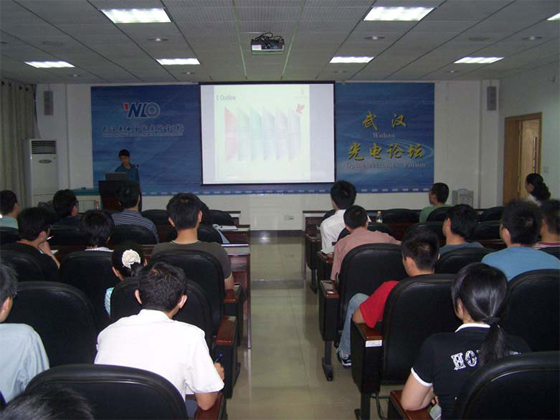
Figure 32: On May 15, 2009, the PI gave four talks at the Wuhan National Laboratory for Optoelectronics (WNLO) in Wuhan, Hubei, China. One seminar Qin presented is focusing on energy-efficient and reliable storage systems. Approximately 80 doctoral students and computer scientists at the WNLO lab attended this seminar.
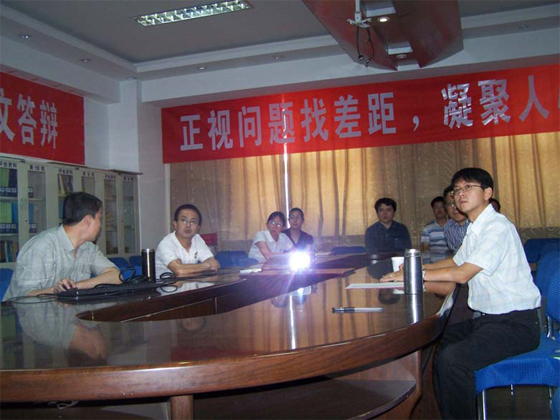
Figure 33: The PI (on the far right), Dr. Jifu Zhang (far left) and his graduate students at TYUST continued working on a collaborative project focusing on I/O impacts of data mining mechanisms on storage systems.
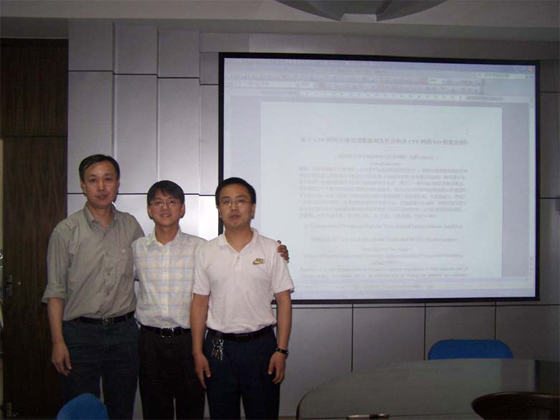
Figure 34: The PI is visiting Dr. Jifu Zhangs Data-Mining Laboratory in TYUST.
From June 1 to 5, Qin visited Nanjing University of Information Science and Technology (NUIST). He gave two talks. The title of the first talk is Thinking About Going to Graduate School?. The title of the second talk is How to Write Research Papers, Part 1 General Principles. More than 100 undergraduate and graduate students with the school of computer and information science at NUIST attend the PIs seminars. Many students felt that they had learned a whole lot from the PIs talks.
Qin and Dr. Shengjun Xue at NUIST initiated a new collaborative project on highperformance computing.
Qin co-supervised four doctoral students at Huazhong University of Science and Technology. These students worked with Qin to develop novel energy conservation techniques in parallel disk systems.
To attract the best minority undergraduate to participate in this project, the PI offered an undergraduate course introduction to computer and network security at the Alabama State University, which is one of the historically black colleges and universities (HBCU). Reliability is one of the issues that need to be addressed in secured storage systems. The PI educated the students about important reliability research issues in large-scale storage systems. The PI also shared our experience of reliability modeling for parallel disk systems with the African-American students who took this class.
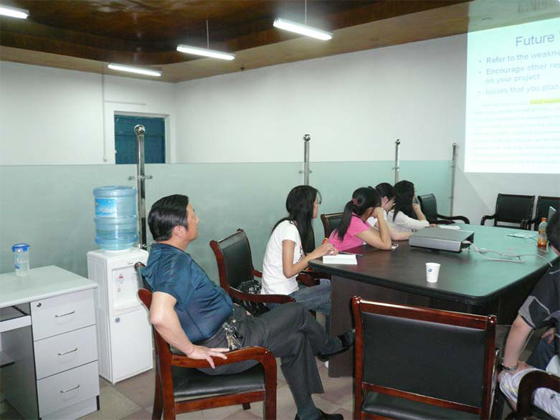
Figure 35: The PI visited Nanjing University of Information Science and Technology (NUIST), Nanjing, China. He gave two talks in the school of computer and information science at NUIST.
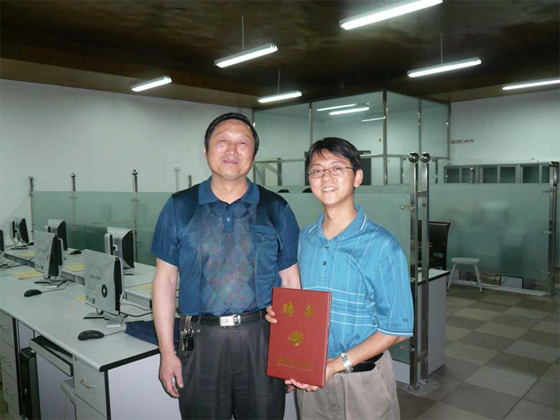
Figure 36: The PI is visiting Dr. Shengjun Xues High-Performance Computing Laboratory at Nanjing University of Information Science and Technology (NUIST), Nanjing, China.
The PI with the department of Computer Science and Software Engineering at Auburn University has given invited/conference talks related to this NSF funded project.
- Secure Fragment Allocation in a Distributed Storage System with Heterogeneous Vulnerabilities, Proc. the 6th IEEE International Conference on Networking, Architecture, and Storage (NAS), July 28, 2011.
- Energy-Efficient High-Performance Storage Systems, Lecture at the Summer School on High-Performance Computing, Hunan University, Changsha, Hunan, China, July 21-23, 2011.
- Energy-Efficient Prefetching and Parallel File Systems, Seminar talk at Nanjing University, Nanjing, Jiangsu, China, June 27, 2011.
- High-Performance Storage Systems for Remote Sensing Applications, Keynote talk at the Intl Conf. Remote Sensing, Environment and Transportation Engineering, Nanjing, Jiangsu, China, June 25, 2011.
- Energy-Efficient High-Performance Clusters, Seminar talk at Hunan University, Changsha, Hunan, China, June 22, 2011.
- Energy-Efficient Parallel Storage Systems with Write-Buffer Disks, Seminar talk at Wuhan National Laboratory for Optoelectronics, Wuhan, China, June 17, 2011.
- Energy-Efficient Parallel Storage Systems with Write-Buffer Disks, Seminar talk at Huazhong University of Science and Technology, Wuhan, Hubei, China. June 10, 2011.
- How to Write Research Papers, Seminar talk at Taiyuan University of Science and Technology, Taiyuan, Shanxi, China, June 3, 2011.
- Energy-efficient prefetching for high-performance storage systems, Seminar talk at Taiyuan University of Science and Technology, Taiyuan, Shanxi, China. June 2, 2011.
- An Application-Oriented Approach for Computer Security Education, invited talk at the Information Security and Computer Applications Conference, Feb. 25, 2011.
- A Novel Application-Oriented Approach to Teaching Computer Security Courses. Poster Session at NSF CCLI/TUES Conference, January 27, 2011.
- Energy Efficient Prefetching From models to Implementation. Seminar talk at Huazhong University of Science and Technology, Wuhan, Hubei, China. June 2010.
- How to Read Papers? Training Session for REU students at Auburn University, May 18, 2010.
- How to Succeed in the AU REU Program? Training Session for REU students at Auburn University, May 17, 2010.
- Improving Energy-Efficiency and Reliability of Storage Systems, Seminar talk at the University of New Orleans, Sept. 4, 2009.
- Can We Improve Energy Efficiency of Secure Disk Systems without Modifying Security Mechanisms? the IEEE NAS09 Conference, ZhangJiaJie, China, July 10, 2009.
- Security-Aware Scheduling for Real-Time Parallel Applications on Clusters, Lecture at Huazhong University of Science and Technology, Wuhan, Hubei, China. June 22, 2009.
- How to Read Papers? Seminar talk at Wuhan National Laboratory for Optoelectronics, Wuhan, China, June 17, 2009.
- Energy Efficient Scheduling for High-Performance Clusters, Seminar talk at Huazhong University of Science and Technology, Wuhan, Hubei, China. June 8, 2009.
- An Overview of Auburn University, Seminar talk at Nanjing University of Information Science and Technology, Nanjing, China, June 3, 2009.
- Thinking About Going to Graduate School? Seminar talk at Nanjing University of Information Science and Technology, Nanjing, China, June 3, 2009.
The PI gave a talk on high-performance clusters at Taiyuan University of Science and Technology, China (see Figure 37). More than 30 faculty members and 300 undergraduate and graduate students attend the PIs seminar focusing on energy conservation techniques.
On April 23rd, Dr. Jiang with the University of Nebraska-Lincoln and two of his doctoral student visited the PI’s new storage systems laboratory at Auburn University (see Figure 38). Dr. Dan Feng along with her two doctoral students also visited the PI’s research group. Seven doctoral student from the PI’s research group gave presentations, reporting their new findings from the projects supported by the U.S. National Science Foundation. Drs. Jiang and Feng provided insightful suggestions and comments on the research projects led by the PI at Auburn University.
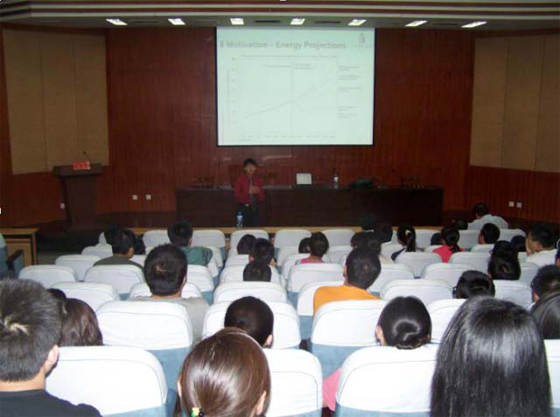
Figure 37: On May 27, 2009, the PI gave a talk on energy-efficient resource management for clusters at Taiyuan University of Science and Technology, China. More than 30 faculty members and 300 undergraduate and graduate students attend the PIs seminar focusing on energy conservation techniques.
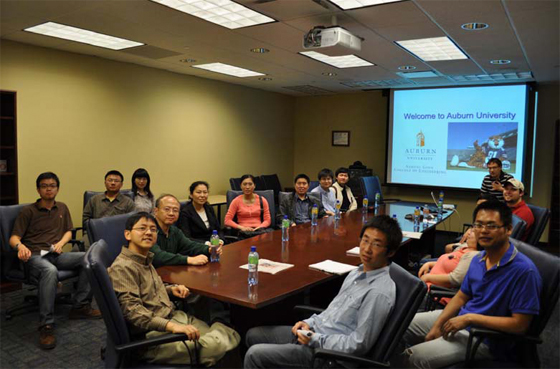
Figure 38: Drs. Hong Jiang and Dan Feng along with their doctoral students visited the PI’s new storage systems laboratory at Auburn University
References
- K. Bellam, A. Manzanares, Xiaojun Ruan, Xiao Qin, and Yiming Yang. Improving reliability and energy efficiency of disk systems via utilization control. In Computers and Communications, 2008. ISCC 2008. IEEE Symposium on, pages 462 –467, july 2008.
- D. Colarelli and D. Grunwald. Massive arrays of idle disks for storage archives. In Proc. ACM/IEEE Conf. Supercomputing, pages 1–11, 2002.
- J.G. Elerath. Specifying reliability in the disk drive industry: No more mtbf’s. pages 194–199, 2000.
- E. Pinheiro and R. Bianchini. Energy conservation techniques for disk array-based servers. In Proc. 18th Int’l Conf. Supercomputing, 2004.
- E. Pinheiro, W.-D. Weber, and L.A. Barroso. Failure trends in a large disk drive population. In Proc. USENIX Conf. File and Storage Tech., February 2007.
- Fangyang Shen, Xiao Qin, A. Salazar, A. Manzanares, and K. Bellam. An energy-efficient reliability model for parallel disk systems. In Information Technology: New Generations, 2009. ITNG ’09. Sixth International Conference on, pages 843 –848, april 2009.
- IDEMA Standards. Specification of hard disk drive reliability. pages Document Number R2–98.
- T. Xie and Y. Sun. Sacrificing reliability for energy saving: Is it worthwhile for disk arrays? In Proc. IEEE Symp. Parallel and Distr. Processing, pages 1–12, April 2008.